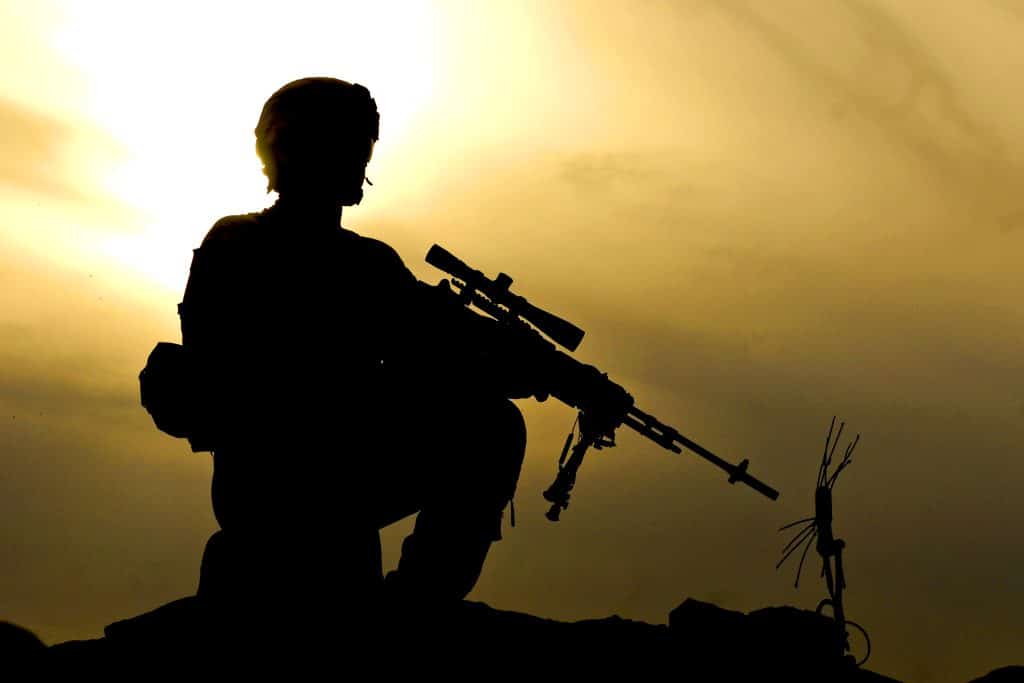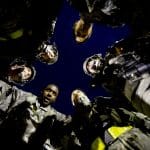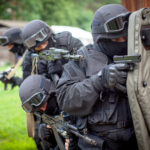When it comes to podcasts, I am a gluttonous consumer. I have to start with a plug to one of the best law enforcement tactical/leadership podcasts I have ever heard, The Debrief with Jon Becker. I highly recommend it to any officer, especially leadership and tactical officers, veterans, and military personnel. While many of the topics are LE-specific, there are lessons in leadership throughout. A lot of them were prior military (I wonder why…).
I have always considered leadership a topic of great interest for a multitude of reasons. There seem to be endless definitions of what a leader is, especially compared to a manager. I think a lot of this is because “leader” is actually a dynamic word and context-specific. In general, in law enforcement and military contexts, I define a leader as someone who:
- Sets the example by aspiring to live and abide by the standards they require of others.
- Match their actions with their words (not a hypocrite).
- Learns from themselves, their mistakes, their successes, and from others. A lifelong learner who can admit when they are/were wrong. (Changing your mind and adapting to new knowledge is OK!)
- Stands by their actions and directions, even in the face of criticism and public pressure. They do not leave their people out to dry after they order them to do something!
- Takes care of the people who follow them.

This is but a short list of broad concepts. I revert back to leadership as a dynamic word. What the podcast mentioned above sets out to do is capture the concepts and lessons learned from some of our greatest leaders. Time strips them away unless we document them so they can be shared with future leaders. So mistakes of the past can be avoided. I can list some of the great leaders I had the privilege to serve with throughout my life and what made them great, but for every great I can list at least three bad leaders. What I have found is that we can learn just as much from bad leaders as from great ones.
When I first got to Regiment, my First Sergeant (1SG) and Company Officer (CO) were horrible leaders. Our training cycles were structured in a manner I will not get into, but there were “recovery weeks.” They were just what they sound like, weeks where most companies would go home between noon and five PM. Not us. Our 1SG would lay out the daily tasks, often in some vague format. We would quickly complete them only to be told we did them wrong, or oh yea, more stuff to do. We often sat in our locker areas just twiddling our thumbs and doing some review training. We watched as other companies would go home, but not us. Somehow the Battalion Commander (BC) cleared all the other companies, but not ours (honesty issues?). He also gave us some sort of last-minute task to complete, handed down by the BC. Even when we went home early, he often called everyone back to complete a 20-minute task that five privates from the barracks could have completed.
This equated to time away from families, time that was already extremely limited given our GWOT cycle of training and deploying. This also led to moral issues. This same 1SG also told me he would gladly get rid of all the non-infantry guys, including the Forwards Observes like me, if he could. We were just dead weight–the people with the radios who granted access to the aircraft overhead with the massive guns, surveillance pods, etc. Our CO mostly just sat there apathetically and let it all happen. After he left, we were blessed with two amazing leaders. Not only did I learn a lot about what kind of leader I did not like, or want to be, it made me appreciate the amazing leadership even more.
Before my first deployment, I was working with a Platoon Leader (PL) who was of the same mentality as the 1SG and CO. He was a West Point graduate, not one of the great ones, but one of the smug ones. He thought he was better and smarter than everyone. Up until that point I had worked with enlisted guys. Our process was simple, I would place my hand on their shoulder to signal I needed to update them on something. I could still keep pulling security, they tapped my hand when they were ready, I told them.

When it was an emergency, like the assets overhead saw bad guys maneuvering on us or a “hot spot” that could be a hidden/buried explosive, I grabbed their strap and pulled. This meant SHUT THE FUCK UP AND LISTEN! I grabbed this PLs strap during this training event as our guys were approaching a simulated hot spot. They were bounding right towards it. His response was to grab my hand, rip it off, and scream at me about how I do not touch him unless he fucking says so, and then pushed me… *simulated boom.* Five guys are dead. He turns and screams at me why the fuck I did not tell them they were. One of the training NCOs jumped in and started screaming at him about why he was a stupid fuck and how I tried to and in real life that would have been five dead Rangers because of his shitty fucking ego.
I think the lessons learned here are pretty obvious. One of which is that ego kills.
In law enforcement, I have had more than my fair share of bad leaders to learn from. I have to tread carefully in divulging too much. I was once told to make a team of officers and clear an apartment after a shooting incident. I grabbed a team, clearly gave everyone a job, laid out the plan, and the supervisor said, go do it. Unbeknownst to us, the two-bedroom apartment had about 15 people inside. We asked for more officers to help sit with people and things just got kind of chaotic. We made it work, started clearing, and then the supervisor walked in and started lecturing everyone while we were actively clearing. This was quickly rectified. In the post-incident debrief he looks at me and says, “Who told you to go clear this apartment!” He was having none of the truth. The blame was supposed to rest on me, not him. Though, I am not even sure what blame there even was to have, you cannot plan for every little thing and we adapted and overcame.
The obvious problem lies in what would have happened if we got into a shooting. Here was this supervisor backing away from his orders and responsibilities.
What I can tell you is that I have a lot of stories about bad leaders, more than I do good or great leaders (which is sad). Despite their bad leadership, I have learned a lot through those experiences. I have learned that just because you are in a position of authority does not mean you deserve to be. The quality of your leadership is much more important than your title. Everyday officers can be great leaders, even better than some of our top leadership. I have learned what type of leader I do not want to be and, more importantly, why. When someone asks why this or that is bad leadership, I can give examples, experience, and provide the negative outcomes. Most of all, it makes me appreciate the fuck out of the great ones!
Jake Smith is a law enforcement officer and former Army Ranger with four deployments to Afghanistan.
As the Voice of the Veteran Community, The Havok Journal seeks to publish a variety of perspectives on a number of sensitive subjects. Unless specifically noted otherwise, nothing we publish is an official point of view of The Havok Journal or any part of the U.S. government.
Buy Me A Coffee
The Havok Journal seeks to serve as a voice of the Veteran and First Responder communities through a focus on current affairs and articles of interest to the public in general, and the veteran community in particular. We strive to offer timely, current, and informative content, with the occasional piece focused on entertainment. We are continually expanding and striving to improve the readers’ experience.
© 2024 The Havok Journal
The Havok Journal welcomes re-posting of our original content as long as it is done in compliance with our Terms of Use.



